Review Talks (Ordered alphabetically based on surname)
Near surface EM technologies – Archaeological and environmental applications
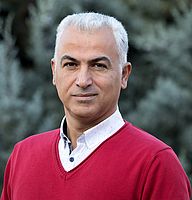
İrfan Akca
Ankara University, Department of Geophysical Engineering, Turkey
Has M.Sc. and Ph. D. degrees in Geophysical Engineering (Ankara University). Main research experience is based on inversion, genetic algorithms, distributed and parallel computing, data visualization and enhancing geophysical images using image processing methods. He has been involved in many projects concerning applied geophysical methods including electrical methods, ground penetrating radar and nuclear magnetic resonance. He visited Leibniz Institute for Applied Geophysics (LIAG, Germany) during 2010-2011 as a guest researcher and worked on hydrogeophysical projects. Recently focused on the research of archaeological sites by geophysical methods, particularly ground penetrating radar. Published and presented his research in national and international journals and scientific meetings in collaboration from different countries and research groups. Currently holding a position of researcher/lecturer at Geophysical Engineering Department of Ankara University.
Unravelling the electrical structure of the mantle with ionospheric, magnetospheric and oceanic EM signals
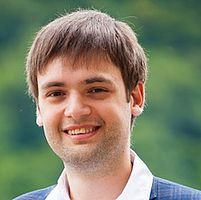
Alexander Grayver
ETH Zurich, Switzerland
Alexander Grayver is a Senior Scientist in the Earth and Planetary Magnetism group at the Institute of Geophysica, ETH Zurich. He obtained a PhD degree in 2013 from the Department of Earth Sciences, Free University of Berlin. Prior to coming to ETH Zurich, he worked as a Research Assistant at the Helmholtz Centre Potsdam GFZ German Research Centre for Geosciences from 2010 to 2014. His research interests are centered around PDE-constrained optimization methods in the context of non-linear inverse problems, numerical modeling of EM induction phenomena from local to global scales and application of machine learning methods to ground and satellite geophysical data. He tries to study the electrical structure of subsurface at different scales, trying to illuminate volcanic systems and geothermal fields, constrain temperature and water content of the upper mantle and transition zone and integrate the electrical conductivity with other geophysical observables in order to build a self-consistent model of Earth’s interior.
EM on Volcanic Islands
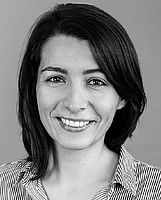
Duygu Kıyan
Dublin Institue for Advanced Studies, Ireland
Duygu Kiyan received a B.Sc. (2005) and an M.Sc. (2009) in Geophysics from the Technical University of Istanbul in Turkey, and a Ph.D. (2015) from the National University of Ireland, Galway and the Dublin Institute for Advanced Studies (DIAS) in Ireland. She then worked as a Postdoctoral Research Fellow at DIAS under the support of the 2016 Science Foundation of Ireland Industry Fellowship Programme and the Irish Centre for Research in Applied Geosciences. She was awarded a 5-year Schroedinger Fellowship within the Geophysics Section of DIAS in 2019. Her current research focuses on the application of the magnetotelluric (MT) method for resource characterisation in Ireland, however in recent years she has successfully applied the MT method to study the internal structure of various volcanic islands, notably the Azores and Iceland.
Electromagnetic technology for prospecting unconventional hydrocarbon resources
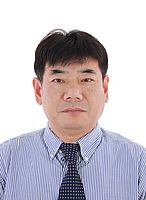
Yan Liangjun
Yangtze university of China
Liangjun Yan is a professor of geophysics at Yangtze university of China specialized in EM prospecting method studies. He received his BS Degree in applied geophysics from China university of Geosciences Wuhan in 1985, Ms Degree in Geo-detection and Inform Technology from China university of Geosciences Beijing in 1991, and PhD in Geophysics from Zhejiang University. He joined CEMI group under the supervisor Professor Zhadanov in the University of Utah as a visiting scholar from 2010 to 2011 worked on control source EM prospecting methods for unconventional oil and gas. He used to be the dean of the college of geophysics and petroleum resources of Yangtze university from 2008 to 2015. Now he is the executive director of Key Laboratory of Exploration Technologies for Oil and Gas Resources (Yangtze University), Ministry of Education, China, and also is the vice director of key lab of geophysical prospecting, CNPC. He shepherded a team for oil and gas exploration with LOTEM for the first time in southern china in the 1990’s, and he has been in charge of several projects of National Key R&D Program of China and NSFC, mainly working on hydrofracturing monitoring and fluid identification with electromagnetic observations. He published extensively on applied geophysics in peer-referred journals, conference proceedings, and technical reports. He served as member of the editing board or associate editor for a number of international journals in geophysics.
Electromagnetic Modeling Using Adaptive Grids - A Reflection on the Term Geometry
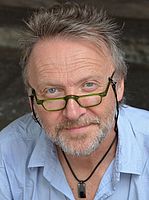
Klaus Spitzer
TU Bergakademie Freiberg, Germany
Klaus studied physics at the University of Göttingen and received his PhD in 1991. He worked as a researcher and lecturer at the Geological Survey in Hannover and the École Polytechnique in Montreal/Canada before he completed his habilitation at the University of Leipzig in 1999. He became a full Professor of Applied Geophysics at the Technical University Bergakademie Freiberg in in 2000 and was head of the Institute of Geophysics and Geoinformatics from 2003 to 2018. His research focus is on geoelectromagnetic methods, particularly on their numerical simulation and inversion. He has been working in close cooperation with the Institute of Numerical Analysis and Optimization of his university for more than 15 years. He was dean/vice dean of the Faculty of Geosciences, Geoengineering and Mining, a member of his university’s senate, chairman/designated chairman of the German Research Council Physics of the Earth, elected member of the Review Board Geophysics and Geodesy of the German Research Foundation DFG, and served for more than a decade as a reviewer for the German Academic Exchange Service. In 2007, he became a trustee of the Gerald W. Hohmann Trust for Teaching and Research in Applied Electrical Geophysics (USA). He has been active in chairing and convening sessions at international conferences and hosted and organized several national and international conferences including the 4th International Symposium on Three-Dimensional Electromagnetics in Freiberg 2007. He was associated editor for Acta Geophysica and guest editor for Geophysics, Journal of Applied Geophysics, and Earth, Planets and Space. He has been active as a reviewer for almost all major geophysical journals and several national research foundations and was recently elected as a member of the current IAGA Executive Committee.
Electromagnetic studies in the Eastern Mediterranean Region with Special Reference to Major Strike-slip Faults
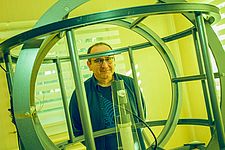
Sabri Bülent Tank
Boğaziçi University, Kandilli Observatory and Earthquake Research Institute, Turkey
Sabri Bülent Tank is currently a faculty member at the Department of Geophysics, Boğaziçi University, Kandilli Observatory and Earthquake Research Institute, İstanbul, Turkey. He got his MSc degree at the Boğaziçi University on the westward drift of the non-dipole part of the Earth’s magnetic field. He received his PhD from Department of Earth and Planetary Sciences at the Tokyo Institute of Technology, Japan in 2004, as a Monbusho scholarship (MEXT) fellow. His PhD thesis topic is “Resistivity Structure at the Western Part of the North Anatolian Fault Zone and its Seismogenic Implications”. During his post-doctoral research he attended the Volcanic Fluid Research Center at the Tokyo Institute of Technology as a Japan Society for the Promotion of Science (JSPS) fellow where he studied on the ocean bottom electromagnetic (OBEM) data collected both at the Marmara Sea and Pacific Ocean. His research interests include the electromagnetic induction studies performed at active/passive fault zones, volcanoes and geothermal systems.